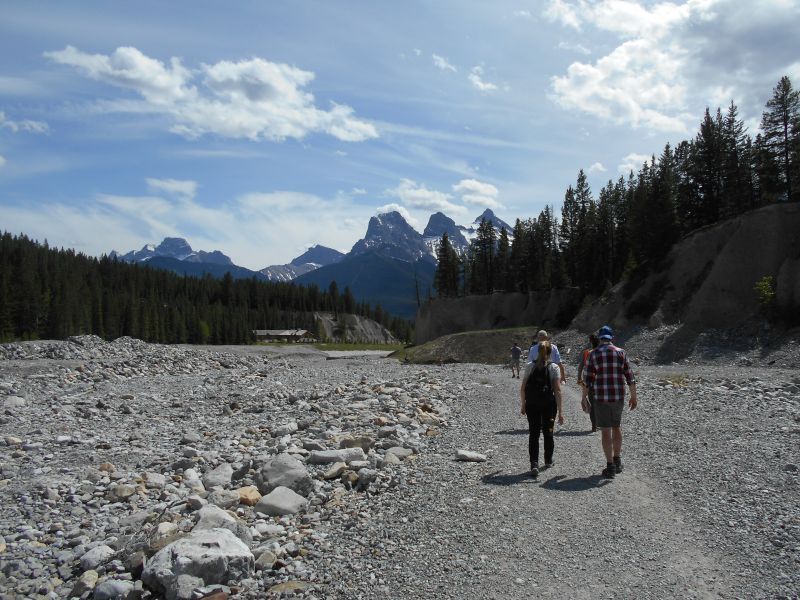
Tackling real world problems from Queen’s campus
Students, faculty, and staff involved in the Masters of Earth and Energy Resource Leadership (MEERL) program recently had the unique opportunity to consider the energy future of Kosovo and the ideas generated could potentially be used to shape Kosovo’s energy policies. The unique experience was delivered on Mar 13, 2022 at a virtual workshop that applied a novel methodology called the Cambridge Policy Simulation Lab (CPSL) developed and delivered by academics from the University of Cambridge, UK.
The Cambridge Policy Simulation Lab (CPSL) is developed by Prof Dr Nazia M Habib, Head of the Centre for Resilience and Sustainable Development (CRSD), at the University of Cambridge. CPSL is an innovative methodology that improves policy articulation and implementation process. The method integrates systems thinking in political economics analysis to improve the decision making process across the stakeholders while not losing sight of the key beneficiaries.
Faculty of Arts and Science Professor Andrew Russell, formerly the United Nations Resident Coordinator, invited Professor Dr Habib from Cambridge University to demonstrate an abbreviated version of the CPSL to the Queen’s students and faculty. He made the invitation to demonstrate how to articulate policies while learning to ‘think’ with uncertainty in the face of inequality and data scarcity. Prof Russell and Prof Habib’s partnership brought Prof Dr Edmond Hajrizi, President of the University of Business and Technology (UBT) in Kosovo to deliver the method with a real-world problem - Kosovo Energy policy.
Each CPSL has a focus question which is deliberated collectively. The question for the MEERL students was: How can the Kosovo Government design Subsidy-Related Policies for energy efficiency in such a way that they support household benefits and limit rebound and counterproductive effects by 2030?
A typical CPSL is delivered as a facilitated workshop format where five different types of thinking styles are experienced by the participants. The workshop runs over multiple days, adding up to over 42 hours of intensive ‘real-life’ engagements with and by the actual decision-makers. At the end of the CPSL, decision makers develop a clear understanding of the unintended consequences and need for institutional alignment to improve policy articulation, and a set of opportunities which can reduce the probability of policy failures. The abbreviated version of CPSL was delivered in three hours as a virtual workshop.
Four policy experts from stakeholder groups within Kosovo provided background and perspective on how Kosovo might achieve reductions in carbon use by 2030, and net zero-carbon by 2050. The discussion touched on various aspects of how Kosovo is seeking to align its economic and social development strategies to the Sustainable Development Goals, including providing access to affordable and clean energy (Goal 7), catalyzing decent work through green jobs (Goal 8), and combatting climate change (Goal 13).
“After spending most of the course working on a case study on conflict over resources in Kosovo, the Policy Simulation Lab gave the students the chance to take a deep dive into the current debate over energy security in the country and to interact directly with the local policy makers who are responsible for addressing these challenges,” says Professor Andrew Russel.
Students from EERL 806 Communication and Partnerships: Stakeholder Engagement Strategies course worked in facilitated break out rooms to brainstorm answers to questions such as what does success look like in 2030? and what surplus value is created but not captured? Students had prepared for the session using briefing notes prepared by Andrew and others and integrated their knowledge from many courses in the MEERL program.
“Personally, I found the breakout sessions to be very engaging,” says Luke Skaarup (MEERL ‘22). “The sessions led us to look at the problems in a new way and then narrow in on what the potential effects of the policies could be and who would be impacted the most/least. The line of questioning encouraged us to step back and lean into the questions more deeply. With this wider lens, we were able to clearly identify, intended and unintended, beneficiaries and impacted parties that we may have otherwise missed.”
MEERL is an online master’s program with interdisciplinary opportunities for students to develop a complete understanding of the resource life cycle within the conceptual framework of earth systems and sustainable resources.
Designed for working professionals, MEERL focuses on enhancing leadership skills and integration across multiple fields within earth resource management, including geosciences, engineering, business, law, and policy.
“This type of experiential learning opportunity brings a unique element into the program,” says Vicki Remenda, Director of MEERL. “There were other MEERL professors who also participated in the simulation lab, and they will bring new ideas from this into their own classrooms.”
To learn more about the program visit the Masters of Earth and Energy Resource Leadership website.

